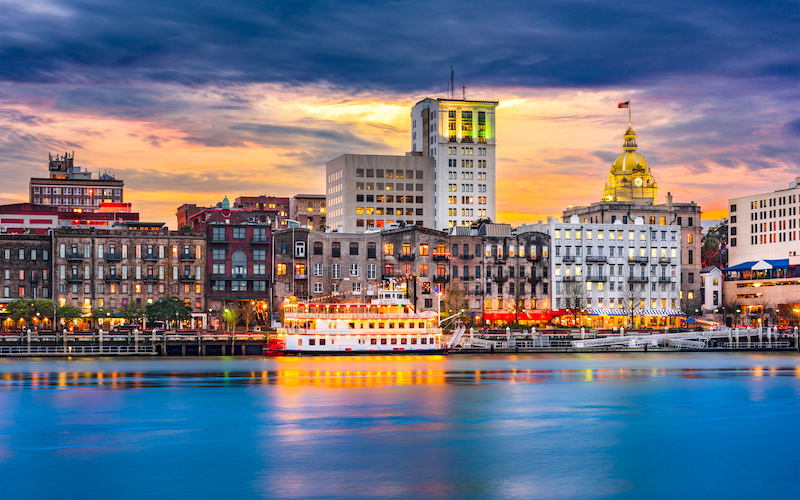
Conflicting signals from public officials about when and how to restart the economy following the COVID-19 shutdown hardly inspire confidence.
President Donald J. Trump has vacillated between entreating Americans to shelter in place and tweeting support for protesters demanding an immediate end to the shutdown. When Georgia Governor Brian Kemp announced that he was relaxing restrictions despite the warnings of public health officials, mayors around the state urged local businesses not to reopen and local residents to remain at home, notwithstanding the governor’s policy. The day after Governor Kemp’s announcement, President Trump publicly admonished him for moving too fast. A week later, the President pivoted again, when White House officials announced that he would be touring the country to advocate reopening the economy.
Adding to all the uncertainty, businesses that reopen without adequate precautions currently face the prospect of private lawsuits for facilitating the transmission of COVID-19. Surprisingly, the fear of being sued may actually help reduce the chaos created by the Trump Administration’s vacillations and conflicting federal, state, and local government policies.
In the absence of clear national leadership, a multitude of government officials are sending mixed signals based on competing models and ballpark guesses about what the future holds. When intensive news media coverage of overflowing hospital wards in New York City competes with coverage of street protests in Austin, Texas, public officials face political crosswinds which may be influencing their policy decisions, especially as election season heats up.
The prospect of lawsuits against businesses that fail to take proper precautions to prevent the spread of COVID-19 is likely to focus business owners’ attention on exercising reasonable care to avoid liability for negligence. The various considerations that define the legal standard of reasonable care—cost-benefit analysis, emerging industry customs, public safety regulations, and common sense—applied in specific contexts by the people who know them best may make the reopening process more reflective and rational than if businesses rely solely on the changing or conflicting policy statements released by public officials.
Fears that liability exposure will lead to a flood of litigation are unwarranted. Legal claims will face considerable obstacles. One problem is the difficulty of establishing causation, given the uncertainty about many aspects of coronavirus infection and the complexity of disease transmission. Nevertheless, in some cases, contact tracing may offer sufficient evidence to show that a victim contracted the virus in a defendant’s place of business.
Another problem is assumption of risk, which would bar recovery for business patrons who appreciated the dangers of contracting the illness and yet voluntarily accepted them. Whether individual plaintiffs appreciated the level of risk that they faced, and whether their patronage of the business or service was fully voluntary, will be issues that are likely to vary from case to case.
To the extent that liability insurers currently do, or in the future will, provide coverage for COVID-19-related claims, that liability protection can help businesses avoid the potentially devastating financial consequences of a successful lawsuit.
Equally important, liability insurers can be counted on to help businesses take reasonable measures to reduce the risk of transmission, such as by selling insurance only to those businesses that implement appropriate risk-reduction measures, providing premium discounts to businesses that take extra precautions, or excluding coverage for high-risk activities such as crowded gatherings. Deductibles will ensure that, although insurance prevents financial ruin, the financial sting of liability will still exist to give businesses an incentive to exercise reasonable care as they weigh the wisdom of reopening.
Public officials should resist growing calls for immunity from civil liability—calls that have unfortunately already been heeded in the state of New York, where the legislature enacted broad immunity for health care workers from medical malpractice claims during the COVID-19 crisis. Senate Majority Leader Mitch McConnell has threatened that he will not allow another coronavirus bailout bill to pass the Senate unless it includes sweeping immunity from liability for businesses.
Immunity legislation will encourage businesses to be even less mindful of taking reasonable precautions to prevent COVID-19 transmission as they face growing financial pressure to reopen.
Legislatures should instead think about how to facilitate the role that liability exposure and liability insurance can play in promoting an orderly reopening of businesses. In New Jersey, for example, a proposed bill would require insurance companies to cover business losses due to coronavirus, notwithstanding any exclusions for communicable diseases or viruses. Other states or the U.S. Congress might consider doing the same for liability coverage.
As the U.S. economy is buffeted by political winds from all directions, liability exposure can help businesses plot a reasonable course through the current coronavirus storm as they attempt to sail toward calmer waters.




